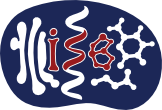Kitamura N, Sacco MD, Ma C, Hu Y, Townsend JA, Meng X, Zhang F, Zhang X, Ba M, Szeto T, Kukuljac A, Marty MT, Schultz D, Cherry S, Xiang Y, Chen Y, Wang J. Expedited Approach toward the Rational Design of Noncovalent SARS-CoV-2 Main Protease Inhibitors. J Med Chem. 2022 Feb 24;65(4):2848-2865. doi: 10.1021/acs.jmedchem.1c00509. Epub 2021 Apr 23. PMID: 33891389; PMCID: PMC8536799.
Abstract
The main protease (Mpro) of SARS-CoV-2 is a validated antiviral drug target. Several Mpro inhibitors have been reported with potent enzymatic inhibition and cellular antiviral activity, including GC376, boceprevir, calpain inhibitors II, and XII, with each containing a reactive warhead that covalently modifies the catalytic Cys145. Coupling structure-based drug design with the one-pot Ugi four-component reaction, we discovered one of the most potent noncovalent inhibitors, 23R (Jun8-76-3A) that is structurally distinct from the canonical Mpro inhibitor GC376. Significantly, 23R is highly selective compared with covalent inhibitors such as GC376, especially toward host proteases. The cocrystal structure of SARS-CoV-2 Mpro with 23R revealed a previously unexplored binding site located in between the S2 and S4 pockets. Overall, this study discovered 23R, one of the most potent and selective noncovalent SARS-CoV-2 Mpro inhibitors reported to date, and a novel binding pocket in Mpro that can be explored for inhibitor design.

